Ocean Pathways
An immersive program for youth that offers in-depth learning and engagement with oceanic and aquatic conservation efforts across Canada.
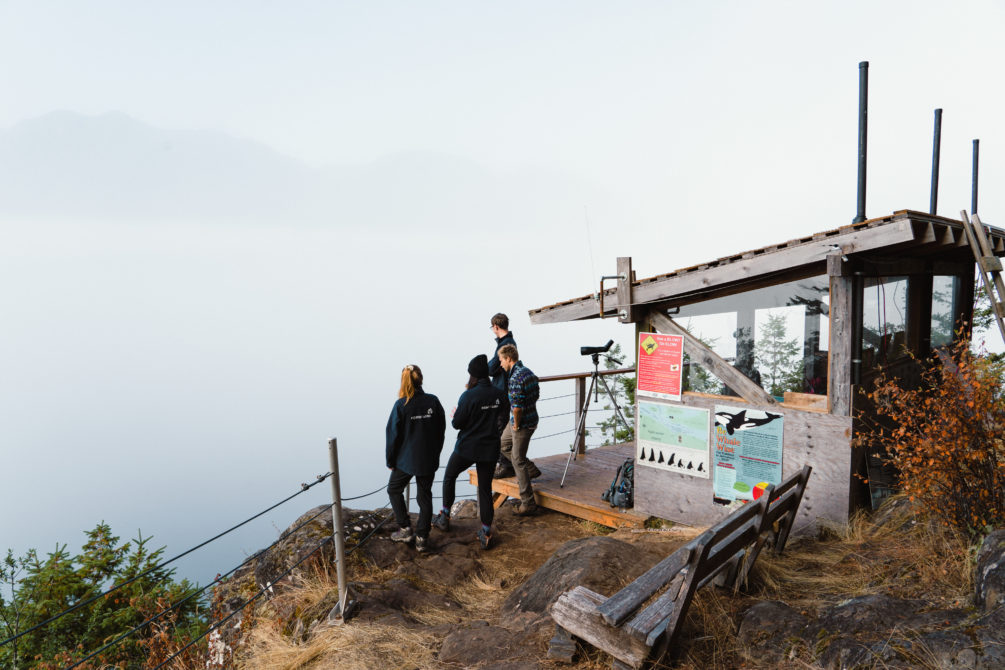
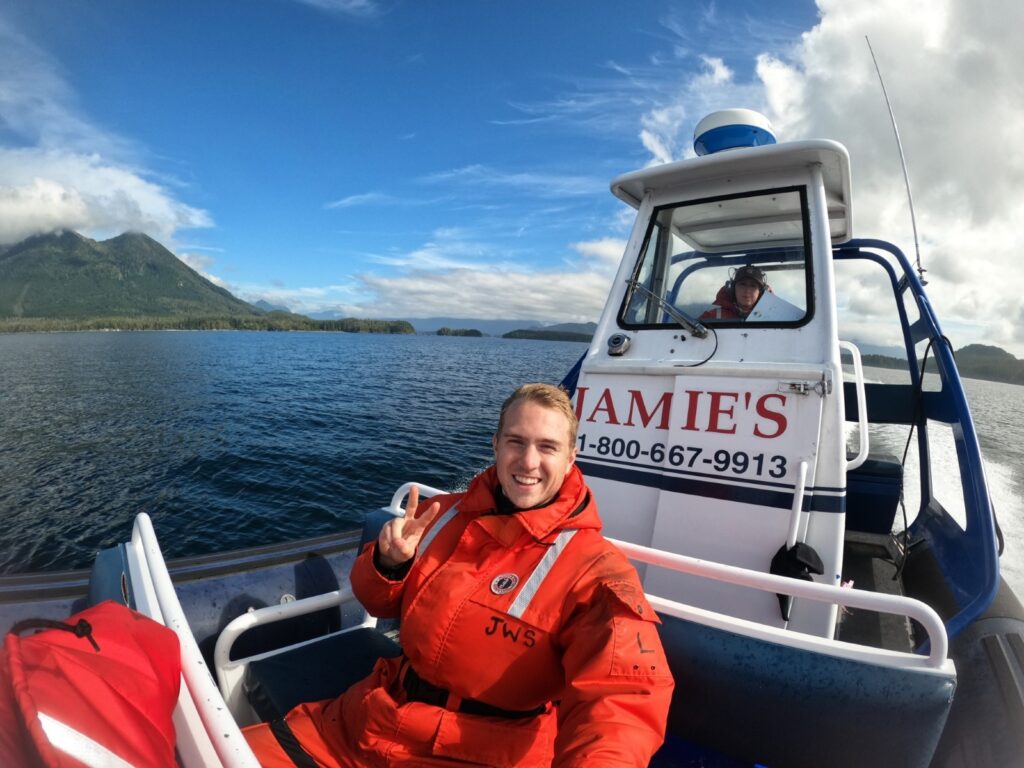
What are Ocean Pathways Placements?
The Ocean Pathways Program provides youth with 3-month full-time service-learning placements that advance their ocean and freshwater conservation skillsets and professional experience. Youth also receive coaching sessions and certified training to build their capacity as ocean and freshwater leaders, supporting growth throughout their placements and into future careers in conservation. Some examples of Ocean Pathways placements could include:
- Assisting Ocean Wise researchers conducting marine mammal research and microplastics research;
- Conducting research, field work and marine biodiversity analysis with the Howe Sound Research and Conservation team;
- Supporting and learning from Indigenous led marine stewardship organizations;
- Working with ocean researchers and conducting coastal fieldwork on the Pacific coast of Vancouver Island;
- Working with ecological research projects and scientists within National Marine Conservation Areas and Coastal Sites;
- Remotely working on policy procedures for conservation areas and project development for environmental education programs;
- Researching and producing wildlife and conservation films and photography for scientific communication and public engagement.
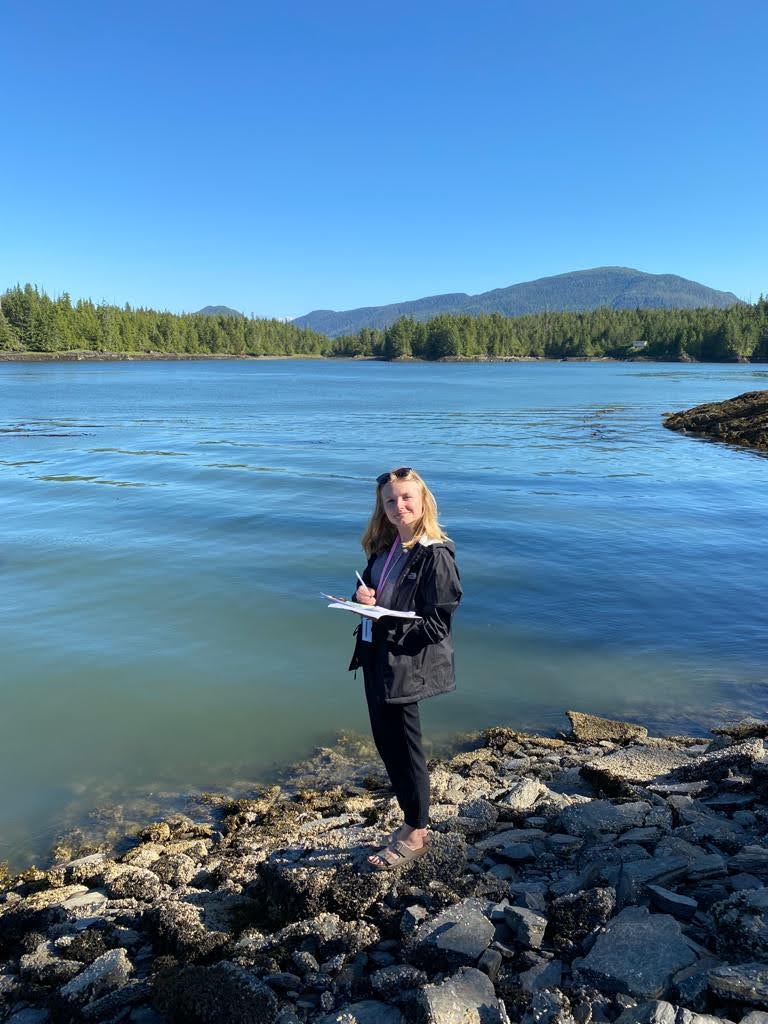
Recruitment Process
There is a three-part process to matching with an Ocean Pathways placement:
- APPLICANT STAGE – You submit an application form to the Ocean Pathways program. Applicants are then contacted by Ocean Pathways staff for a short phone call to get to know you and ensure this program is the right fit for you.
- CANDIDATE STAGE – Ocean Pathways staff gauge interest in specific placements relevant to candidate’s interests and availability by email. Then, staff and the host organization select a shortlist of eligible, available, and interested candidates for a placement. They are then invited to introductory meetings with the host and Ocean Pathways staff.
- PARTICIPANT STAGE – After the meeting, a selected candidate is offered a funded 3-month placement position. Upon candidate and partner confirmation, they become an official Ocean Pathways participant and are provided the necessary paperwork and onboarding to the program.
Please note, placements start at different times of the program year, so candidates will be contacted on an ongoing basis throughout the year and invited to introductory meetings per the availability indicated in their application. We have a limited number of funded placements available, and if you were not matched with a placement in a particular year, you are welcome to reapply the following program year.
The experience was simply wonderful, and I can’t thank Ocean Pathways (Direct Action) enough for their support.
Simon Grieshaber-Otto
2021 Ocean Pathways (Direct Action) alum - British Columbia
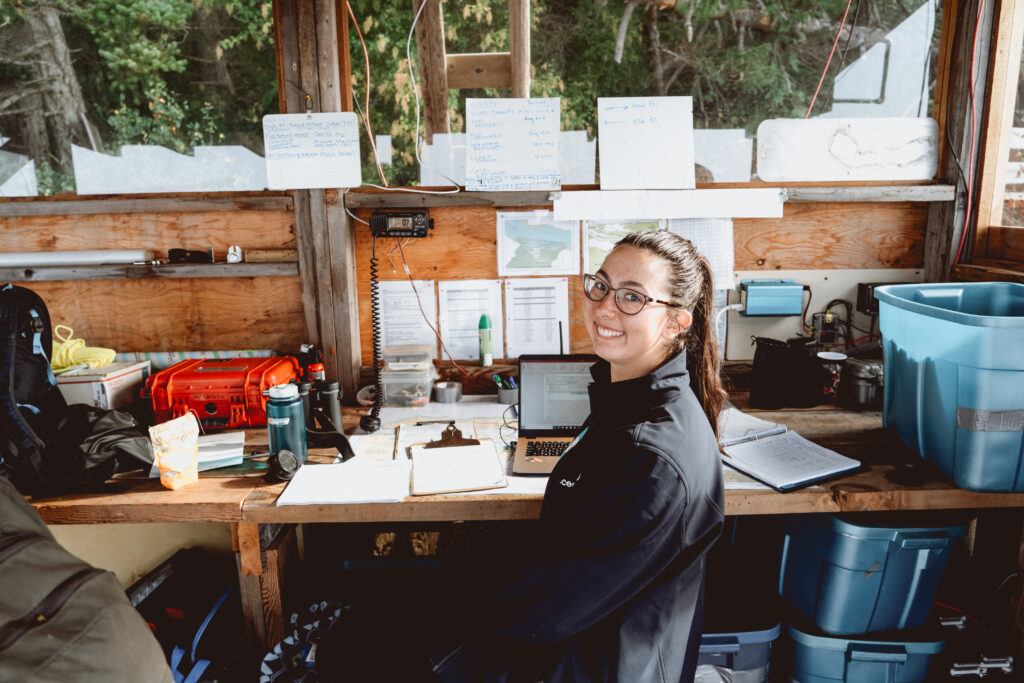
Program Requirements
- Complete a minimum of 360 hours (30 hrs/week) of service during a continuous 3-month immersive field or virtual placement under the guidance of the host organization;
- Engage in mentorship with the placement host & coaching sessions every two weeks with Ocean Pathways staff;
- Attend a group online session at the end of the program experience;
- Complete necessary training and certifications required to work within field placements (training hours count towards total service hours);
- Engage and contribute to the online activities such as submitting blog posts, sharing experiences on social media, and participating in online discussions;
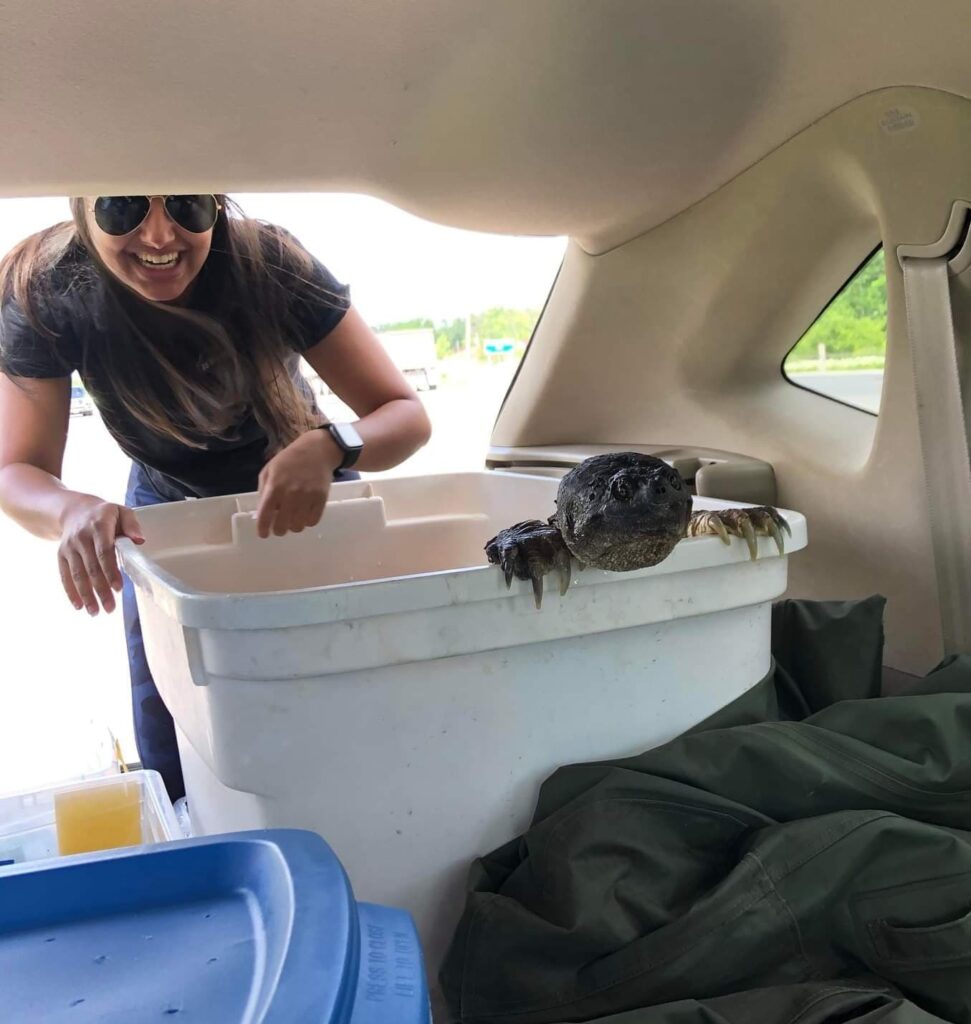
Who can participate?
Canadians or permanent residents aged 19 to 30 who are passionate about the ocean and waterways. No prior experience is necessary and people from all backgrounds and knowledge are welcome! We encourage everyone with different identities, abilities, talents, and interests to apply.
Our program is committed to creating an inclusive, diverse, and equitable environment for all applicants, aligned with anti-racism and decolonization agendas.
The program covers expenses related to living expenses, accommodation, travel, materials and equipment, phone, internet, and professional development. We also offer Homewood Health and Wellness services including consultants, therapists, articles, videos, and a whole library about various topics.
Education, research, and direct action are all needed to protect and conserve the environment, and that’s why this was an invaluable experience that will live with me for the rest of my life
Nikolay Senilov
2021 Ocean Pathways (Direct Action) alum - British Columbia
Frequently Asked Questions
We are closely monitoring the evolving COVID-19 situation in Canada and are continuing with the Ocean Pathways program placements, while adapting the placements as needed to the changing context. We are continuing to work with our partners and hosts to organize 3-month placements with flexible start dates, so please keep us updated on your availability for this year if you have applied. We will update our approved candidate list as we proceed with the program. Virtual placements are also possible this year with Ocean Pathways, where participants receive mentorship and guidance from professional researchers and host organizations to work on marine and aquatic conservation projects from home. In each case, Ocean Pathways has funding to help cover all placement-related costs associated with living expenses, training and materials during the 3-month placement.
Ocean Pathways participants will complete a minimum of 360 hours of full-time (30 hrs / week) continuous service learning over a 3-month time period. Any training hours involved would count towards the 360-hour requirement. In the application form, please indicate which months you will be available for a continuous 3-month window, and we will do our best to match successful candidates with available placements. The program placements typically take place over the summer, fall, and winter months. An example of a 3-month placement time window could be 30 hrs/week from July to September.
The Ocean Pathways staff team will match each youth participant with an available placement with a regional or national partner organization working on research projects related to marine and aquatic stewardship and ocean conservation. We have partnered with regional, provincial, and national level not-for-profit conservation organizations and government partners, as well as researchers and scientists within Ocean Wise, to develop placement opportunities in marine and aquatic conservation and stewardship, based in many different remote or rural communities across Canada. Virtual placements are also possible this year with Ocean Pathways, where participants receive mentorship and guidance from professional researchers and host organizations to work on marine and aquatic conservation projects from home.
Some placements are virtual, where service placements are completed from home. There is also the option for local placements, which would be completed from within your local community or region. Others are on-site, meaning that participants would travel from their home communities to the placement sites. Some participants can expect to be placed in communities close to marine environments, such as the Pacific and Atlantic Shores, along the St. Lawrence River, or beside the Great Lakes.
No, the Ocean Pathways team will be responsible for matching participants with the available placement opportunities. Information collected from both the participants and the partner organizations will be used to make the best matches for each placement.
Ocean Pathways will cover the expenses related to travel (to and from home communities and placement sites), training, placement material costs, food, and accommodation (up to allotted budget amounts). Youth participants will be given a stipend for food and other costs will be directly paid for by Ocean Pathways.
Ocean Pathways will determine what training and materials are required for each placement and coordinate with the host organization, who will be responsible for delivering the training at the placement site. The training hours will be counted towards the total number of service hours required for the placement.
The Ocean Pathways staff team will be in contact with every youth participant to organize the logistics of their placement, as well as provide coaching and support through phone calls and emails prior to the start of the placement. Other relevant training and mentorship will be provided at the placement sites by the partner organizations.
Ocean Pathways will organize and manage the housing and accommodations, aiming to have participants living in close proximity to their work site. If there are local travel expenses to and from the housing to the work site, Ocean Pathways will cover those costs.
This program is designed to be a low-barrier program for all Canadian youth aged 19-30 years old. We encourage people from all backgrounds and educational levels to apply. There are no minimum criteria for educational experience or research / training qualifications needed for youth applicants. We do collect information about any qualifications or education within the Ocean Pathways Application Form to best match the selected youth applications with their service placements.
Bilingual ability in speaking/reading/writing in French is not a requirement for applicants. However, the Ocean Pathways program is a bilingual program and we have support capacity for native French speakers. We encourage people who have the ability to speak/read/write in French to apply as there may be opportunities for bilingual placements.
Each placement will provide a diverse range of opportunities for youth participants to learn skills and gain experiences directly related to ocean conservation and marine and aquatic stewardship. Youth will be closely mentored by established scientists and researchers with partner organizations, and will also learn from direct immersion through work with coastal communities across Canada. Youth can expect to gain a broad professional development skillset related to community engagement, conducting ecological fieldwork, working with a research team, conservation and stewardship ethics and communicating their experiences. Youth will also receive coaching sessions from Ocean Pathways staff and training from partner organizations to build their capacity as ocean leaders and support them throughout their service placements. The purpose of these coaching calls is to provide regular check-ins for the youth participants and any additional support from the staff team.
No, the Ocean Pathways placements are service learning and educational placements. We are a low-barrier program designed to cover the costs for the participants to support their learning and provide opportunities for professional development in marine and aquatic conservation.
Youth participants will be invited for post-program check-ins and fill out program surveys in order to collect their feedback on the program and their experience with it. Youth participants will also be encouraged to highlight their learning and professional development from their Ocean Pathways placements on their future career paths.
Please contact the Ocean Pathways staff team at [email protected] for more information, and we will respond as soon as possible before the placements begin and during the placements. We will conduct regular check-ins and coaching phone calls will all of our youth participants to support them prior to, during, and after their service placements. Youth participants can also directly ask their mentors associated with the host organizations for questions related to their placement work and career development.
Still have questions?
Contact us at [email protected] or call us at 604-659-3885 for more information!
